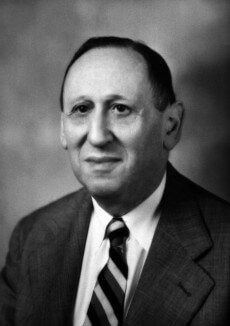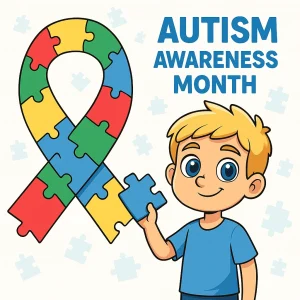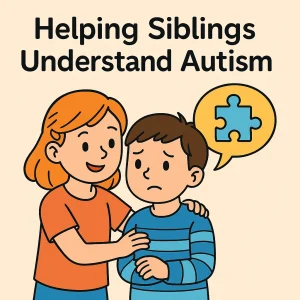Refrigerator Mother Theory: An In-Depth Analysis
By Rajini D
Last Updated: March 27, 2023
Autism is a complex neurological disorder characterized by challenges in communication, social skills, and often repetitive behaviors. It’s known as a spectrum condition because it affects individuals differently and to varying degrees. Historically, the understanding of autism has evolved dramatically. One notable milestone in this journey was the emergence of the Refrigerator Mother Theory in the mid-20th century. This theory, now debunked, posited that autism was caused by emotionally distant parenting. This article aims to shed light on the evolution of our understanding of autism, moving beyond outdated and disproven theories like the Refrigerator Mother Theory, to a more informed and compassionate perspective today.
Our article on speech therapy for autism offers valuable insights.
The Origin of the Refrigerator Mother Theory
The Refrigerator Mother Theory was primarily put forth by Leo Kanner, an Austrian-American psychiatrist, in the early 1950s. Kanner was among the first to recognize autism as a distinct condition. He observed that many children diagnosed with autism came from homes that appeared emotionally cold and uninvolved, leading him to speculate that a lack of maternal warmth was a causal factor for the disorder.

This theory was influenced and supported by the work of others, including Sigmund Freud, the father of psychoanalysis, and Bruno Bettelheim, a prominent child psychologist. Freud’s theories on early childhood experiences influencing later psychological states lent credibility to the idea that a mother’s emotional state could impact her child’s mental health. Meanwhile, Bettelheim, known for his work on child psychology, also endorsed and propagated the Refrigerator Mother Theory.
Know more about Social Communication Disorder: A Quick and Easy Guide
The cultural and societal backdrop of the 1950s played a significant role in the acceptance and spread of this theory. This era was marked by traditional views on family and motherhood, where a woman’s primary role was seen as a caregiver. In this context, the Refrigerator Mother Theory found fertile ground, as it aligned with existing biases and misconceptions about maternal responsibility and emotional expression in parenting.
This theory, though eventually disproven, reflects an important period in the history of understanding autism. It highlights how societal norms and cultural biases can shape scientific theories and the importance of evolving our perspectives based on new research and understanding.
For more insights into the early developmental challenges and milestones, refer to our detailed guide on speech and language milestones.
Impact of the Theory on Families
The Refrigerator Mother Theory had a profound psychological impact on families, particularly mothers. Mothers of children with autism were often blamed for their child’s condition, leading to intense feelings of guilt and inadequacy. This blame was based on the notion that their lack of emotional warmth and affection was the root cause of their child’s autism. This theory not only placed an unfair burden on mothers but also ignored the complex nature of autism.
The broader social implications were equally significant. Parents, especially mothers, faced stigma and judgment from society. This scrutiny often led to social isolation and increased emotional stress for these families. The guilt associated with this theory was compounded by a lack of understanding and support from the community. Parents grappled with the challenges of raising a child with autism while also fighting against the societal misconception that their parenting style was at fault.
Explore more on our article Online Family counselling
Scientific Challenges and the Debunking of the Theory
The turning point in understanding autism came with the work of Bernard Rimland, a psychologist and father of a child with autism. Rimland, through his research and advocacy, played a pivotal role in challenging the Refrigerator Mother Theory. He argued that autism was not caused by poor parenting but was instead a biological condition.

Key studies in the 1960s and 1970s began to disprove the link between maternal behavior and autism. These studies showed that the emotional characteristics of mothers of autistic children were not significantly different from those of mothers of non-autistic children. Furthermore, they emphasized that autism was not a result of parenting styles but was likely due to genetic and neurological factors.
This shift marked a significant change in how autism was understood. Autism began to be seen as a neurodevelopmental disorder influenced by a combination of genetic and environmental factors. This new understanding paved the way for more compassionate and effective approaches to supporting individuals with autism and their families. It highlighted the need for research focused on the biological underpinnings of the condition, moving away from blame and stigma towards empathy and scientific inquiry.
To delve deeper into the current understanding and treatments of autism, visit our section on autism spectrum disorder.
Modern Understanding of Autism
Today, our understanding of autism has evolved significantly. The consensus among experts is that autism is a complex neurodevelopmental disorder. Research strongly points to genetic and neurological factors as primary contributors to the development of autism. Genetic mutations and variations are thought to play a crucial role, although the exact mechanisms remain an area of ongoing research. Additionally, studies have highlighted potential neurological differences in the brains of individuals with autism, suggesting that these differences are integral to the condition.
Autism is recognized as a spectrum disorder, which means it manifests differently in each individual. This spectrum nature acknowledges the vast diversity in experiences and abilities of individuals with autism. Some may require significant support in their daily lives, while others may be largely independent. This diversity extends to skills, challenges, communication abilities, and sensory experiences.
Current interventions for autism are diverse and tailored to individual needs. They include behavioral therapies, speech and language therapy, educational support, and various forms of social support. These interventions aim to enhance communication, social skills, and learning abilities. Families also have access to support systems, including counseling, parent training programs, and community support groups. These resources aim to empower not just the individuals with autism, but also their families, fostering an environment of understanding and growth.
For a comprehensive overview of available therapies and treatments for autism, check out our autism treatment centre in Hyderabad.
The Lasting Effects of the Theory
Despite the Refrigerator Mother Theory being debunked, its remnants can still be felt in some societal perceptions today. The legacy of this theory sometimes surfaces in subtle ways, such as unwarranted judgments or advice about parenting styles directed at parents of children with autism. These echoes of the past can add to the challenges parents face, including the struggle against outdated misconceptions and stereotypes.
Parents and families continue to navigate these societal misconceptions, often having to advocate for their child’s needs and educate others about the realities of autism. The stigma attached to autism has lessened over the years, but awareness and understanding vary greatly. Efforts to increase public awareness and understanding of autism spectrum disorder are crucial in combating these lingering effects of the Refrigerator Mother Theory. This involves promoting accurate information about autism, its causes, and the experiences of those who live with it, fostering a more informed and empathetic society.
Also Read: Understanding & Parenting an Autistic Child: Guide & Tips
Debunking Myths About Autism
| Myth About Autism | Fact |
|---|---|
| Caused by cold parenting | Autism is not caused by parenting style. Research shows that genetic and neurological factors play a key role in the development of autism. This understanding emphasizes that autism is a complex neurodevelopmental disorder, not a result of emotional detachment from parents. |
| Autism is a disease | Autism is not a disease; it is a neurodevelopmental disorder. This means it’s related to the growth and development of the brain and nervous system. Unlike a disease, which can be cured or treated, autism is an intrinsic part of an individual’s makeup, influencing their processing and interaction with the world. |
| All individuals with autism have the same experience | Autism is a spectrum disorder, meaning it manifests differently in each individual. Some individuals may require significant support in their daily lives, while others may need less. The term “spectrum” in autism spectrum disorder (ASD) reflects this diversity in experiences, abilities, and challenges. |
Read more Busting Common Myths About Autism: What You Need to Know
Conclusion
The journey from the debunked Refrigerator Mother Theory to the contemporary understanding of autism underscores a significant evolution in scientific insight and societal attitudes. What began as a misguided theory placing undue blame on parenting has transformed into an acknowledgment of autism as a complex neurodevelopmental disorder, shaped by genetic and neurological factors. This progression from blame to understanding highlights the importance of empathy and evidence-based science in addressing and supporting the diverse experiences of those on the autism spectrum. Modern interventions, tailored to individual needs, coupled with robust family and community support, reflect a more compassionate and informed approach to autism, moving beyond misconceptions to a deeper understanding and acceptance.
Wellness Hub plays a pivotal role in this ongoing journey, offering a wealth of resources, including cutting-edge therapies and supportive interventions for individuals with autism and their families. With a commitment to enhancing lives through education, empathy, and effective treatment, Wellness Hub embodies the shift towards a more inclusive and supportive society. By prioritizing ongoing research and a nuanced understanding of autism, Wellness Hub not only debunks myths but also empowers individuals with autism and their families, championing a future where every person is recognized for their unique strengths and potential.
Frequently Asked Questions:
1. What is Autism Spectrum Disorder (ASD)?
Autism Spectrum Disorder is a complex neurodevelopmental disorder characterized by challenges in communication, social interaction, and often includes repetitive behaviors. It’s called a spectrum disorder because it affects individuals differently and to varying degrees.
2. What caused the Refrigerator Mother Theory to be accepted in the past?
The Refrigerator Mother Theory was accepted in the past due to limited understanding of autism, societal biases, and the prevailing psychological theories of the time, which emphasized maternal influence on child development.
3. Who debunked the Refrigerator Mother Theory, and how?
Bernard Rimland, a psychologist and father of a child with autism, played a pivotal role in debunking the theory. He provided evidence that autism is a biological condition, rooted in genetic and neurological factors.
4. What are the current beliefs about the causes of autism?
Current beliefs about autism emphasize genetic and neurological factors as primary contributors. While the exact causes are still being researched, it is understood that autism is not caused by parenting styles or practices.
5. How does autism manifest in individuals?
Autism manifests differently in each individual. Some may require significant support for daily tasks, while others may be largely independent. Symptoms can include challenges with social skills, communication difficulties, and repetitive behaviors.
6. What kinds of interventions and support are available for individuals with autism?
Interventions can include behavioral therapies, speech and language therapy, educational support, and social skills training. Families also have access to support systems like counseling, parent training programs, and community support groups.
7. Are there any misconceptions about autism that still exist today?
Yes, misconceptions still exist, including outdated beliefs about the causes of autism and stereotypes about the capabilities of individuals with autism. Ongoing education and awareness efforts are essential to combat these misconceptions.
8. How important is early diagnosis and intervention in autism?
Early diagnosis and intervention are crucial as they can significantly improve the quality of life and developmental outcomes for individuals with autism. Early intervention can enhance communication, social skills, and learning abilities.
9. Can autism be ‘cured’?
Autism is not a disease and therefore does not have a ‘cure.’ However, various interventions can help individuals with autism to develop essential life skills and lead fulfilling lives.
10. How can society be more supportive of individuals with autism and their families?
Society can be more supportive by fostering inclusive environments, promoting awareness and understanding of autism, and providing appropriate resources and support for individuals with autism and their families.
Any therapy related queries, Please click on this link to find out more.
About the Author:
Rajini, M.Sc., Speech-Language Pathologist (9+ years of experience)
Rajini is a passionate and dedicated Speech-Language Pathologist with over 9+ years of experience, specializing in both developmental speech and language disorders in children and rehabilitation in adults. Driven by a desire to empower each individual to find their voice, Rajini brings a wealth of experience and a warm, genuine approach to therapy.
Currently, at Wellness Hub, she thrives in a team environment that values innovation, compassion, and achieving results for their clients.
Connect with Rajini to learn more about how she can help you or your loved one find their voice.
Book your Free Consultation Today
Parent/Caregiver Info:
Client’s Details:
* Error Message









